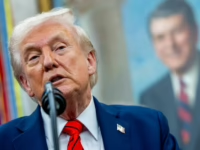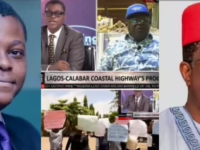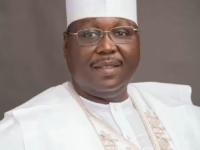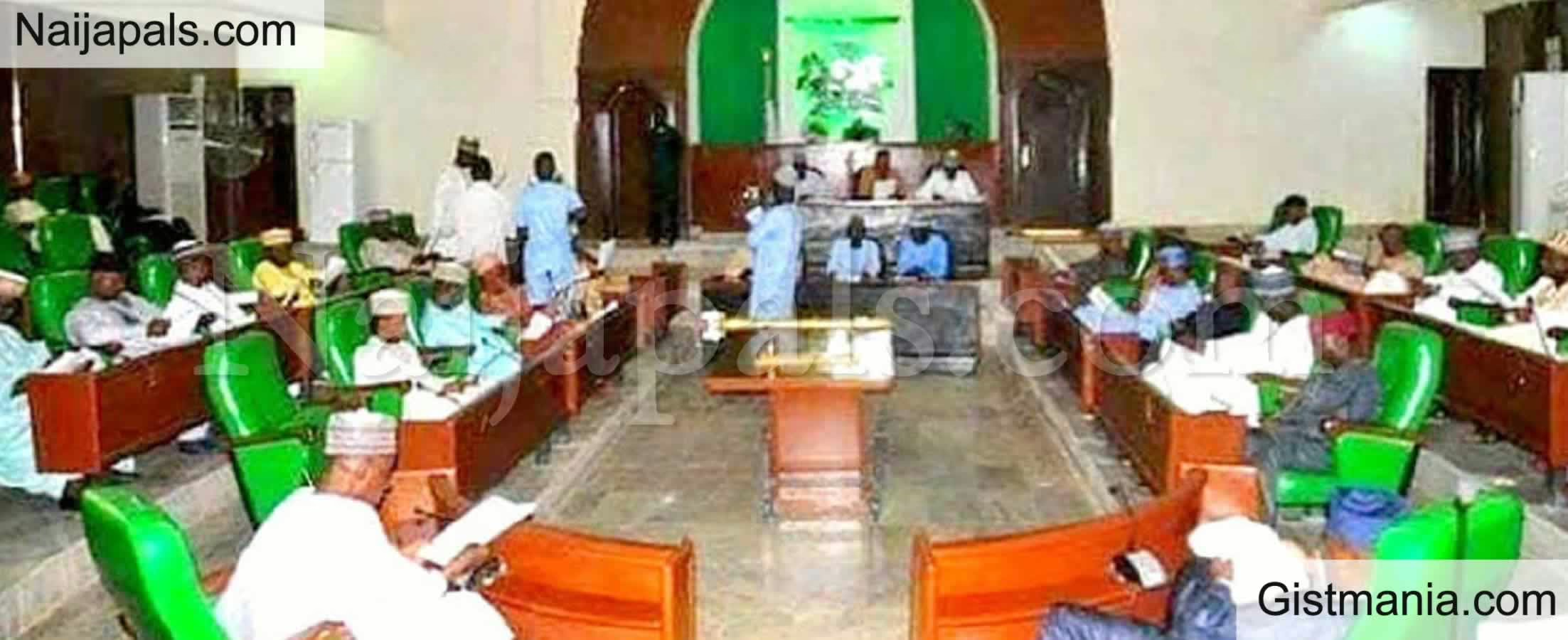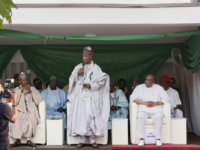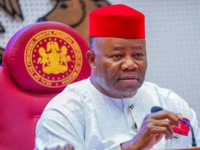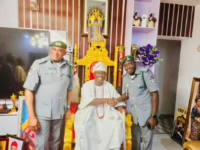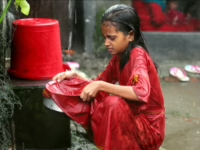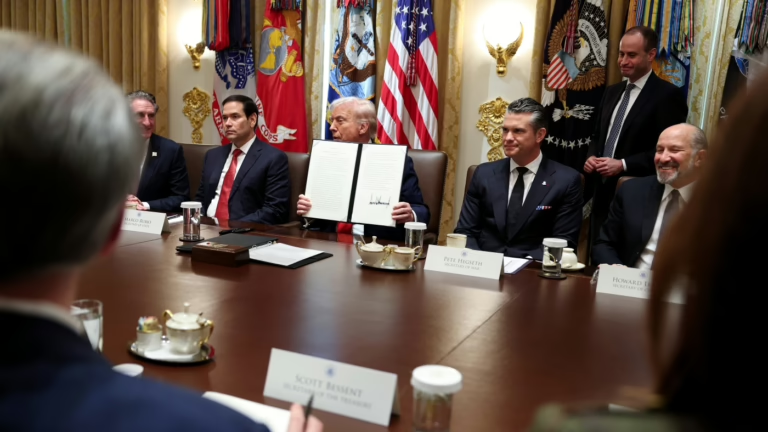President Trump displays a presidential proclamation for Columbus Day during a Cabinet meeting at the White House on Thursday.
Anna Moneymaker/Getty Images
hide caption
toggle caption
Anna Moneymaker/Getty Images
In a recent move, President Trump officially declared the upcoming Monday as Columbus Day, aiming to restore what he described as the explorer’s remarkable heritage marked by faith, bravery, endurance, and moral integrity.
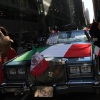
This proclamation follows Trump’s April announcement on social media, where he vowed to revive Columbus Day “with the same traditions, dates, and observances as it has been celebrated for decades.”
In contrast, many communities have shifted focus toward Indigenous Peoples Day, a celebration honoring Native American heritage and their enduring impact on the nation.
Scholars and activists, including Kerri Malloy, a Native American and Indigenous Studies professor at San José State University, have criticized Columbus Day. Malloy highlights that Columbus’ arrival initiated widespread devastation for Indigenous populations across the Americas, involving the spread of fatal diseases, land dispossession, and forced religious conversion.
Thursday’s proclamation notably omits any mention of Indigenous Peoples Day, instead condemning what it terms “left-wing arsonists” for attempting to erase Columbus’ legacy and tarnish his reputation.

Columbus Day remains one of the 12 federal holidays recognized in 2025. Data from the Pew Research Center shows that 30 states and three U.S. territories observe Columbus Day in some form, while 17 states plus Washington D.C. honor Indigenous Peoples Day on the same date. Some states acknowledge both holidays simultaneously. In 2021, President Joe Biden became the first to officially recognize Indigenous Peoples Day alongside Columbus Day.
Born in Italy in 1451, Christopher Columbus embarked on his 1492 voyage with backing from the Spanish crown, aiming to reach Asia. Instead, he landed in the Bahamas and subsequently made three additional expeditions to regions including South America, Central America, and the Caribbean. Notably, he never set foot on what is now U.S. soil, according to Britannica.
The first official Columbus Day observance was declared by President Benjamin Harrison in 1892, a year after a violent anti-Italian mob lynched 11 Italian immigrants in New Orleans. This tragic event strained U.S.-Italy relations, and the holiday served as a gesture of reconciliation. Later, President Franklin Roosevelt established Columbus Day as a federal holiday in 1934.
Following the signing of the proclamation, Trump expressed solidarity with Italian Americans, stating, “We’re back, Italians. We love the Italians.”
New York Republican Representative Elise Stefanik praised the proclamation on X, affirming, “New Yorkers love Columbus Day!”
Similarly, Rep. Mike Lawler, an Italian-American Republican from New York, declared on X, “Viva Italia! As a proud Italian-American, I stand firmly behind preserving Columbus Day and celebrating the rich heritage and achievements of Italian-Americans.”
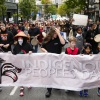
However, not everyone welcomed the proclamation. Malloy criticized it for perpetuating a one-sided narrative that glorifies Columbus as a heroic discoverer, ignoring the harsh realities of exploitation and commerce that defined his expeditions. “A complete story must include all perspectives,” Malloy emphasized.
Despite the controversy, the president encouraged citizens to honor Columbus Day by flying the American flag on public buildings.
Matthew Fletcher, director of the Indigenous Law and Policy Center at Michigan State University, interpreted the proclamation as a political gesture aimed at minority groups who typically do not support Trump’s party. He noted, “There isn’t a widespread movement backing Columbus Day anymore, except perhaps among Italian Americans.”
Fletcher also pointed out that regardless of the holiday’s official name, Indigenous communities will continue to observe and celebrate their heritage at local, tribal, and state levels, maintaining the significance of Indigenous Peoples Day.





